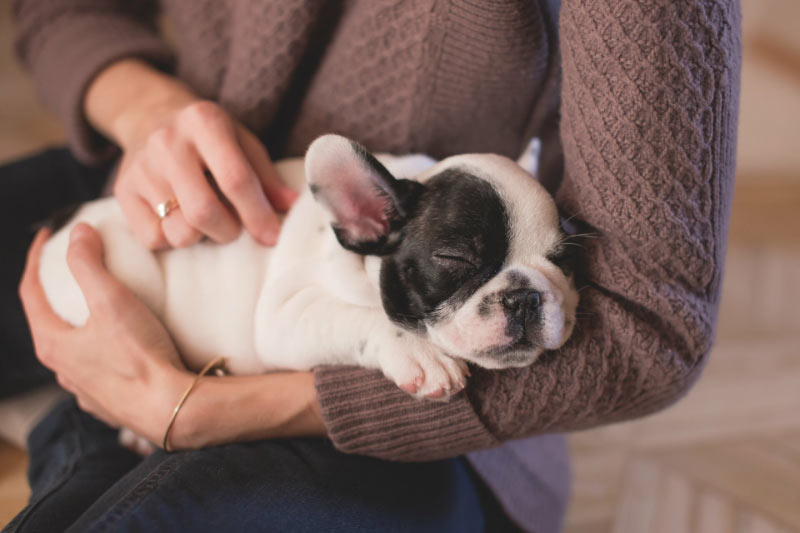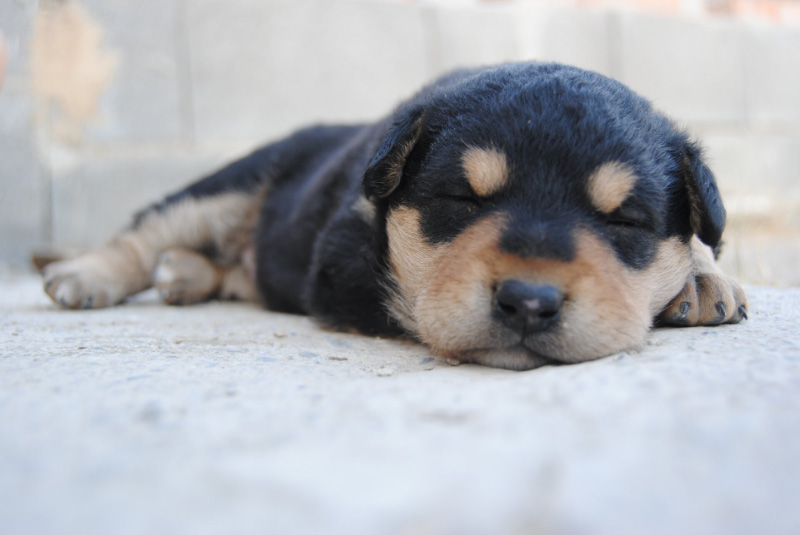Sleepy, Little Puppy
For those of us who got a new puppy, managing the newness of a puppy is both exciting and difficult. If you have ever had a puppy, you’ll know that the average newborn puppy sleeps 22 hours a day might surprise you! When I got my new puppy, I felt like I was a parent of a newborn again. The puppy cried at night and I was back in the mode of no sleep. I remember thinking it was impossible for my puppy to be getting 22 hours of sleep if I was getting none. Soon, I found out that puppies get their 22 hours of sleep because they are polyphasic sleepers and humans are monophasic. What does that mean?
Polyphasic means that puppies get their sleep in many cycles. They get it through napping and shorter sleep cycles. A puppy can only sleep for 45 minutes at a time and actually go through two sleep phases within that time! That may prove difficult for us monophasic, or one phase, sleepers. Puppies may nap every hour after waking up. This means they may sleep 30 minutes to two hours and once they wake, they will sleep again within the hour. That truly is a lot of sleep, but for monophasic humans, this equals broken sleep and grumpiness the next morning, no matter how much coffee is involved.
Puppies will wake up, go to the bathroom, play, eat, and repeat. It is not uncommon for very young puppies to fall asleep during or immediately after playing or eating, as they tire out very quickly. The more your puppy is active, the quicker they tire out.
Not only do we have to contend with the sleep cycles of puppies, but also the ability of their bladders and bowels. Puppies have to go to the bathroom more often than older dogs and this goes for the nighttime as well. So prepare for little sleep yourself to help your new addition learn to go potty where it is supposed to go.
One of the cute parts about so much sleep is that you will see so many different sleeping positions with your pup. Most dogs prefer stretching out or curling up to sleep, but some will sleep on their backs, upside down, and in all kinds of other positions. This will be a great opportunity to get some adorable photos of your new little love.
Puppies may also twitch and snore while they are sleeping. This is perfectly normal. You may have seen your little pup twitching, running in place, etc. while it sleeps. This is rapid eye movement, and it happens very often.
There are some ways to help this process along and create good sleeping habit for your puppy:
- Use a crate: crate training your puppy provides a dark, quiet, comfortable place for them to sleep. Purchasing a stuffed toy or blanket with the sound of their mother’s heartbeat or a warming pad will also give your puppy comfort while sleeping in the first few weeks. Click here for the one I used! They may associate the crate with sleep time and they’ll begin to understand that when they are put in the crate, it’s time to wind down and drift off. This process also helps with potty training as well! I love double rewards! If you’re still looking for a crate for your puppy, check out this folding dog crate that includes a leak-proof plastic tray.
- Close proximity: keep the crate or the puppy’s sleep area close to you for the first portion of your dog’s life. The puppy is going to need to go potty quite often and you will need to hear the noises that will let you know it’s time. Being close to you will also help the puppy feel safe. Putting a shirt with your scent on it in the crate will also comfort your puppy while he sleeps.
- Final potty break: take the puppy out right before bedtime to allow them to sleep comfortably at first.
- Limit cuddles: I know it may be hard because they are so darn adorable, but try to avoid creating bad habits at night by cuddling or playing with your puppy when it wakes up during the night. When the puppy wakes, let it go potty, then right back to bed.







